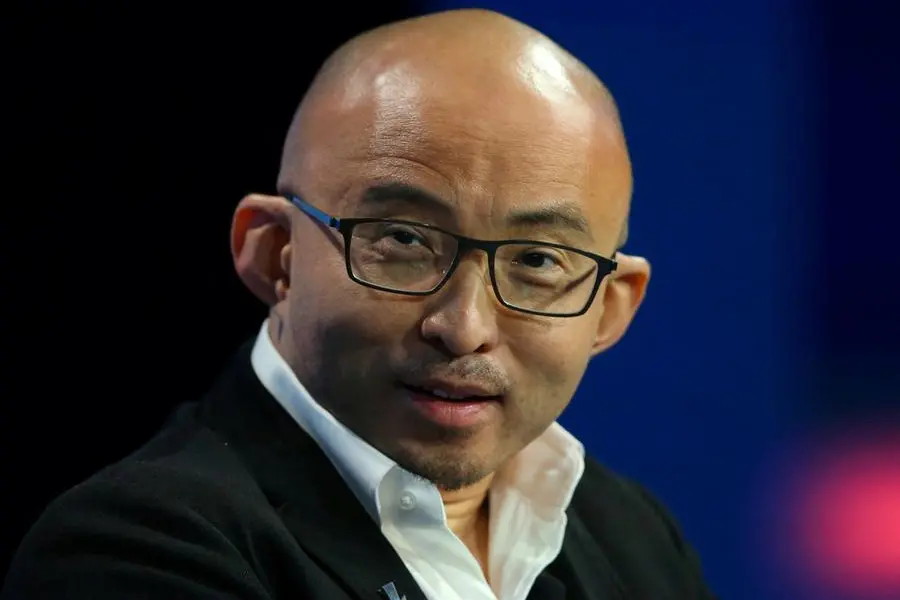PHOTO
China Renaissance Holdings Ltd saw its shares plummet by as much as 50% on Friday after the investment bank said it is unable to contact its Chairman and Chief Executive Bao Fan, in the latest disappearance of a top business executive.
The disappearance of Bao, the company's founder and controlling shareholder, drove China Renaissance's Hong Kong-listed stock to hit a record low of HK$5 in early trade, wiping off HK$2.8 billion ($357 million) in market value.
The stock regained some ground later in the day to be off by 28% in the Hong Kong market which was down 0.7%. Nearly 30 million shares of the boutique investment bank changed hands on Friday, the highest on record.
"The board is not aware of any information that indicates that Mr. Bao's unavailability is or might be related to the business and/or operations of the Group which is continuing normally," the mainland China-based bank said in a late-Thursday filing.
A China Renaissance spokesperson referred Reuters' request for comment on Friday to the investment bank's public filing.
The well-known dealmaker's disappearance is the latest in a series of cases of high-profile Chinese executives going missing with little explanation during a sweeping anti-corruption campaign spearheaded by President Xi Jinping.
In 2015 alone, at least five executives became unreachable without prior notice to their companies, including Fosun Group Chairman Guo Guangchang, who Fosun later said was assisting with investigations regarding a personal matter.
The disappearance comes after China's border reopening and renewed focus on boosting the sagging economy has brightened the outlook for deals, as has an easing of a regulatory crackdown on technology firms.
Bao who previously worked at Credit Suisse Group AG and Morgan Stanley, has been hailed as one of China's best-connected bankers.
He was involved with major technology mergers including the tie-up of ride-hailing firms Didi and Kuaidi, food delivery giants Meituan and Dianping and travel devices platforms Ctrip and Qunar.
DEALS ADVISER
"If a listed company voluntarily discloses that a senior manager or a major shareholder cannot be contacted, it's truly unusual, as the person might have been out of reach for some time," said Dickie Wong, executive director of research at Kingston Securities.
Investors' worst nightmare is that a company's ability to continue operation is impaired, so a stock sell-off is not surprising given the uncertainty, Wong added.
At the helm of China Renaissance, Bao has taken an increasingly active role in the group's private equity business in recent years, according to two sources with direct knowledge of matter.
The sources declined to named due to sensitivity of the matter.
China Renaissance is currently ranked ninth on China's equity capital markets leagues table for 2023, according to Refinitiv, after it advised on Jiangsu Sanfame Polyester Material $363 million convertible bond last month.
The firm earned $20.6 million in Chinese related investment banking fees in 2022, down from $43.13 million a year earlier, the data showed.
Bao started China Renaissance in 2005 and listed it in Hong Kong in 2018 after raising $346 million.
The bank has acted as adviser for some of China's biggest tech initial public offerings (IPOs) including those of JD.Com Inc and Kuaishou Technology as well as Didi's New York listing in 2021.
Didi ran afoul of the Chinese regulators when in 2021 it pressed ahead with the U.S. stock listing against the regulator's will, sources previously told Reuters.
China Renaissance is also an active investor in the tech sector. In 2019, it raised more than 6.5 billion yuan ($945 million) in a yuan-denominated fund.
Bao's disappearance comes days after property developer Seazen Group Ltd said it was unable to contact or reach its vice-chairman.
($1 = 7.8483 Hong Kong dollars)
(Reporting by Julie Zhu, Kane Wu and Donny Kwok; Additional reporting by Kevin Xu; writing by Scott Murdoch. Editing by Sumeet Chatterjee, Christopher Cushing and Jamie Freed)




















